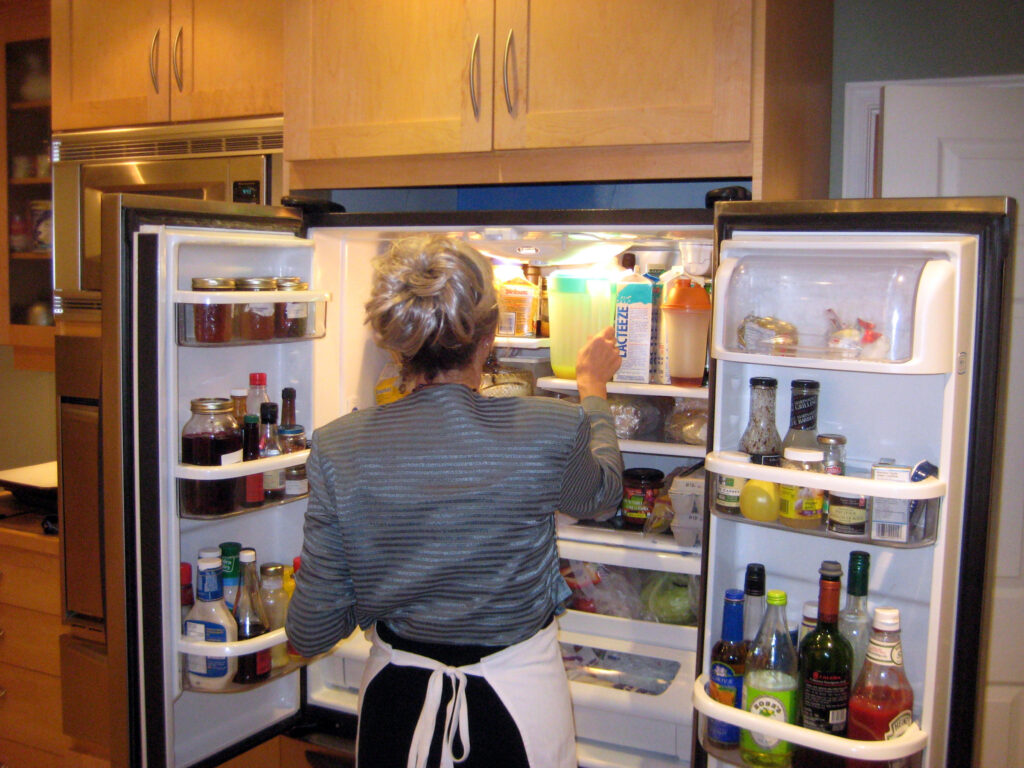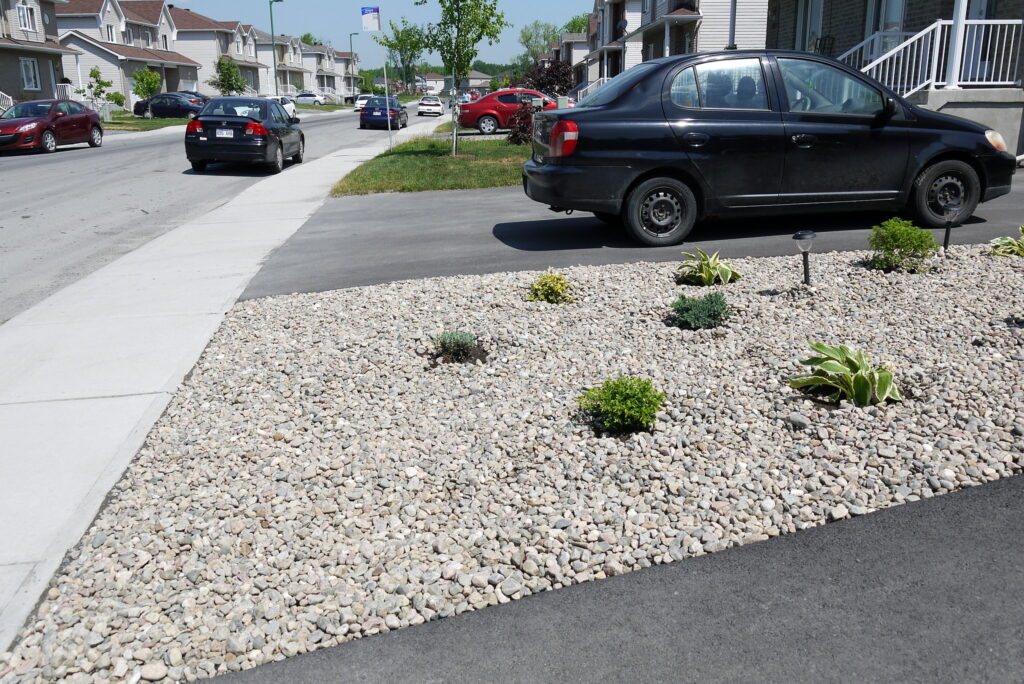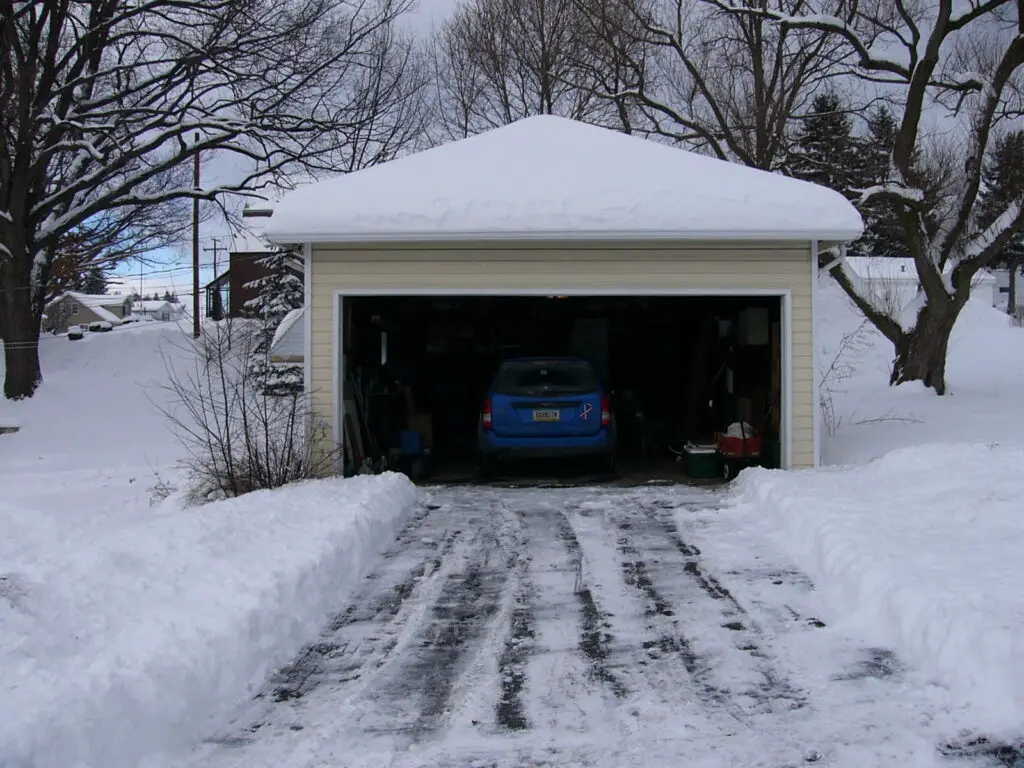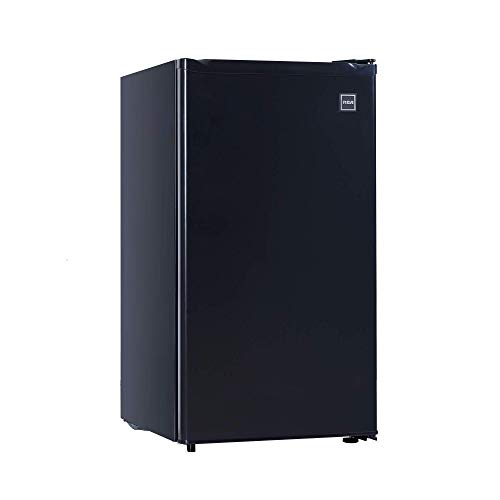Garage Ready Refrigerator: The Best Ones for 2024!
garagemadesimple.com is a participant in the Amazon Services LLC Associates Program, an affiliate advertising program designed to provide a means for sites to earn advertising fees by advertising and linking to Amazon.com . The website is also an affiliate of a few other brands.
Garage Ready Refrigerator? Do You Need One?
Mowing the lawn when it’s above 80 degrees F is hard work. You get thirsty and need to get yourself a cool refreshing drink. Can’t walk in into the kitchen with your muddy feet and open the kitchen fridge with your grubby hands. So would it be OK to put a refrigerator in the garage? Do you need a garage ready refrigerator for that? Or will any fridge be OK?
It gets a bit confusing here. Internet forums have members sharing conflicting experiences & advice. Some refrigerator salesmen say that only a garage ready refrigerator will work in a garage.
You sure can put a refrigerator in the garage. It is not about a garage ready refrigerator. It is about having a garage that is ready as a living space. A garage that protects and prolongs the life of your cars. A garage in which you can safely store your sports and outdoor gear. In short a climate controlled garage.
But then you may not yet have a climate controlled garage (though you should be working towards it). Or maybe you have a detached garage that you use sparingly.
You still want to be able to pull out that cold beer on a hot Sunday afternoon from the garage fridge. So let me explain how a refrigerator works and how to make sure the refrigerator in a garage works perfectly, even when the garage is not heated, or cooled or insulated.
How does a Refrigerator Work?

So a refrigerator is a cabinet. You want the inside of this cabinet to be cool so that your favorite beverages are ice cold and your snacks remain fresh & edible. In other words you want a temperature of 35°F to 40°F even when the room temperature is above 75°F.
You do this by “compressing” a refrigerant outside of the refrigerator and letting it “expand” inside the refrigerator.
The “compressor” compresses the warm refrigerant gas to a liquid. This happens outside the refrigerator in a long “condenser” tube. You can alway see them if you take a peek behind your refrigerator.
The gas loses its heat to the outside air and becomes a cold liquid. The condenser tube then enters the inside of the refrigerator and this part is called the “evaporator” tube. The cold refrigerant in the evaporator absorbs the heat from the stuff inside, turning from liquid to gas in the process.
The warm refrigerant gas comes back to the compressor and the cycle continues. A refrigerator is essentially a heat pump.
Why a Refrigerator may not work in a Garage?
Garage gets too hot!
This would, of course, not be a concern if you have a climate controlled garage. But if your garage is not climate controlled, how hot is too hot for the refrigerator.
Most modern refrigerators are designed to work in ambient (room) temperatures ranging from 50°F to 90°F. Manufacturer’s know that homeowners will keep their homes in the comfort zone of 70°F to 80°F.
Since a refrigerator is essentially a heat pump, quite obviously the compressor has to work harder if the ambient temperature is higher.
The compressor does not work 24-7. It only works when the inside temperature goes beyond the setting on the thermostat. Once the inside temperature drops below the setting, the compressor takes a break.

The ambient temperature also determines the rate at which the refrigerator is absorbing heat. Higher the ambient temperature, the faster it is absorbing heat from the room it is in. The inside temperature rises above the thermostat setting and the compressor has to get to work.
So basically the higher the garage temperature, the longer the compressor works. Electricity bill goes up a bit, compressor life comes down a bit. It won’t break the bank or bust the refrigerator, but just so you know!
If your garage is hitting 100°F or more, the refrigerator is the least of your worries. You should be worrying about your cars and the skis that you are storing there!
At least get some insulation and air circulation in the garage.
Fun Fact!
Death Valley is famous as the hottest place on earth….. Summer temperatures often top 120°F (49°C) in the shade…..
Death Valley National Park, CA, NV
Garage gets too cold!
A refrigerator is not designed for ambient temperatures below 50°F. When it is freezing cold outside with temperatures in single digits, then your garage is going to get real cold too! Unless it has proper insulation and heating.
Pretty Cold
The refrigerator in the garage is going to survive the pretty cold (35°F to 50°F) phase. The lubricating oils in the compressor will get thicker, but no serious concern.
The point is that once you are in the pretty cold phase of winter, headed towards the freezing cold phase, do you really want to be still running your garage refrigerator? Read on…
Freezing Cold
Do you expect your garage to get freezing cold (that is temperatures plummeting below 32°F)? Does your refrigerator have an ice maker connected to a water source?
Then the water lines, water valves and the water reservoir can freeze and burst. So disconnect the water line and empty the water reservoir in advance.

I would say that it is better to unplug the refrigerator for the winter months. If you have any food or other stuff that will freeze, move it to the kitchen refrigerator.
Of course, I am assuming (but I think it is a fair assumption) that the garage refrigerator is not the main refrigerator of the house. A garage refrigerator should be used to store a couple of days stock of beverages and snacks. Keep it small and replenish it when required.
Garage gets too humid!
Yes, high humidity can be a real life problem in a garage that is not climate controlled. Humidity can go up in the garage for a host of reasons; high humidity outside, damp floors & walls, water pooling, melting snow etc. etc. The list goes on and on!
High humidity only spells rust & degradation for metal parts. And refrigerators have a lot of metal in them. But so do cars and a lot of other stuff that you keep in the garage.
If your garage is not good enough for a refrigerator, it sure is not good enough for your car. If high humidity in the garage is your only concern, seriously consider better ventilation (fans) or even dehumidifiers.
What is a Garage Ready Refrigerator?
The term “garage ready refrigerator” is a term used by some manufacturers to differentiate this kind of refrigerator from regular refrigerators. Typically, a Garage Ready Refrigerator
- Is designed to work over a much larger ambient temperature range
- Have more insulation and are more energy efficient
- May have more sensitive temperature sensors
- Has a small heater for the thermostat
A refrigerator that is “Garage Ready” essentially has a small heater that tricks the thermostat in the fridge into running your compressor so that your freezer keeps your freezer items frozen.
Answered by FrigidaireSupport 3 years ago
Sometimes there are claims that a garage ready refrigerator has an ambient temperature range of 0°F to 100°F. However, this possibly refers to a freezer rather than a refrigerator.
The ambient temperature range stated by prominent manufacturers is 39°F to 110°F.
Best Garage Ready Refrigerators: My Personal Favs
I just love tinkering around in my garage, even when the temperatures are close to 100 F. Of course to keep myself cool I like pulling out a can of coke or beer from the fridge. My personal favorite garage ready referigerators are:
Best for Beverages
hOmeLabs Beverage Refrigerator and Cooler
- 120 Slim Can Capacity,
- Digital Thermostat,
- Even Consistent Cooling,
- Adjustable Temperature Control,
- Interior LED Lighting,
- Reversible Glass Door,
- Adjustable Shelves
Best Mini Refrigerator
Sleek and beautiful, this 3.2 CU Foot Refrigerator is amazing! This fridge is perfect for the garage. The compressor cooling fridge will keep your drinks and food at a perfect temperature.
With the built in freezer you can even store ice cubes and ice cream! There is a door bracket to neatly store your drinks.
Best for Garage (Overall)
The GE 4.4 cu. ft. Mini Refrigerator has an in-the-door can rack for easy use. Freezer features include a mini ice tray and a chiller feature along with a defrost pan.
ENERGY STAR qualified to meet or exceeds federal guidelines for energy efficiency.
3 glass shelves create convenient food storage with easy-to-clean shelves Can rack offer quick and easy access to your favorite drinks Tall bottle door storage space accommodates larger sized bottles.
Bottom Line
The bottom line is that
- Most modern refrigerators are designed to work in ambient (room) temperatures ranging from 50°F to 90°F
- Refrigerators are most efficient when the ambient temperature is at levels that are comfortable for human beings (70°F to 80°F)
- Garage Ready Refrigerators are designed to work within ambient (room) temperatures ranging from 38°F to 110°F
- If the refrigerator has an ice maker and the temperature drops below 32°F, the water lines, water valves and the water reservoir can freeze and burst.
- The refrigerator in the garage is probably not the primary refrigerator of the house. So maybe it is best to have a small one, keep only small quantities of beverages & snacks and replenish often.
- In which case it may be best to disconnect the garage refrigerator during the winter months and move the beverages & snacks to the kitchen refrigerator. Time for the coffee vending machine!
Thank you very much for reading the post. I do hope you found it informative and useful.










